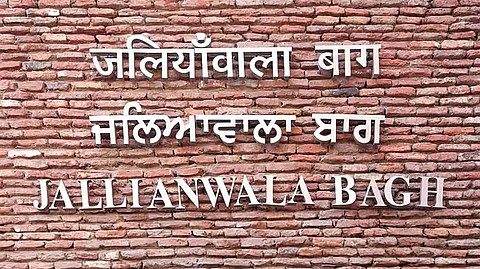

Opposition Tory MP Bob Blackman has demanded an official UK government apology to India on the approaching grim anniversary of Jallianwala Bagh massacre, which occurred 106 years ago under British colonial rule.
Addressing the House of Commons last week, the member of Parliament for Harrow East in London highlighted the events of April 13, 1919, and said that thousands of innocent civilians were killed and injured in the shooting at Jallianwala Bagh.
Blackman recalled how General Dyer ordered British troops to fire at innocent civilians who were gathered at the Jallianwala Bagh peacefully.
He said: "General Dyer, on behalf of the British Army, marched his troops in and ordered his troops to fire on those innocent people until they ran out of ammunition. At the end of that massacre, 1,500 people were dead and 1,200 injured.
"Eventually, General Dyer was disgraced for that stain on the British Empire. In 2019, the then prime minister, Theresa May, recognised this was a stain on British colonial rule in India. But could we have a statement in government time? The anniversary of this will be on the 13th of April this year, when we're in recess. So could we have a statement from the government admitting to what went wrong and formally giving an apology to the people of India," he said.
Lucy Powell, the Leader of the House of Commons, responded on behalf of the Labour government in Parliament and expressed gratitude to Blackman for raising the issue, referring to the massacre as one of the most notorious and shameful episodes in the history of British colonialism.
She said: "Can I thank him for raising this important matter of the Jallianwala Bagh massacre, which, as he says, is one of the most notorious and shameful episodes in the history of British colonialism, particularly in India. But I think probably wider than that.
MORE LIKE THIS…
"I will absolutely make sure that the foreign office ministers have heard his question today and I will suggest that perhaps they bring forward a statement in advance of the anniversary."
The Jallianwala Bagh Memorial in Punjab commemorates the 2,000 Indians who were killed or wounded, shot indiscriminately by the British under the command of General Reginald Dyer on 13 April 1919 while participating in a peaceful public meeting on the festival of Baisakhi. This marked a major milestone in India's freedom struggle.
The story of this appalling massacre is told in the Martyr's Gallery at the site in Amritsar, Punjab. A section of wall with bullet marks still visible is preserved along with the memorial well, in which some people jumped to escape.
"The impossible men of India shall rise and liberate their mother land", declared Mahatma Gandhi after the Jallianwala massacre. "This disproportionate severity of punishment inflicted upon the unfortunate people and method of carrying it out is without parallel in the history of civilised government", wrote Rabindranath Tagore, the noble laureate, while returning his Knighthood in protest.
(*With ANI Inputs)
MORE LIKE THIS…